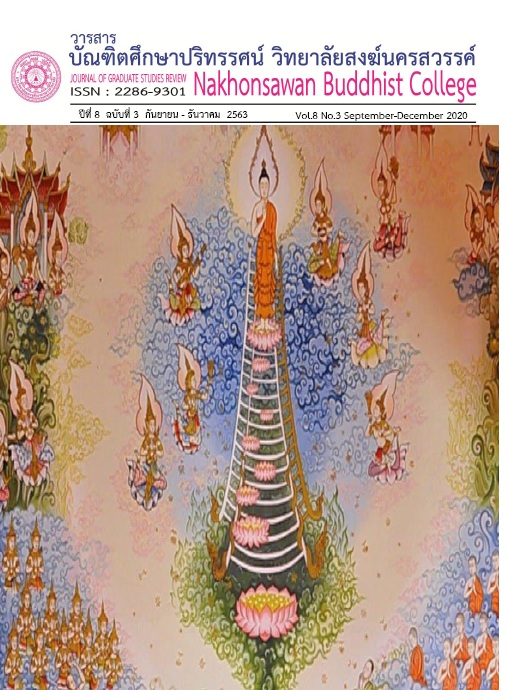Efficiency of Buddhist Personnel Management in School Under Nakhon Sawan Province Administrative Organization.
Main Article Content
Abstract
The objectives of this research were 1) to study the efficiency of the Buddhist personnel management of schools under Nakhon Sawan Province Administrative Organization, 2) to compare the efficiency of the Buddhist personnel management among schools under Nakhon Sawan Province Administrative Organization classified by the individual's factors and 3) to present the guidelines to develop the efficiency of human resource management in Buddhism of schools in Nakhon Sawan Province Administrative Organization. The study was conducted from the sampling group of administrators, teachers and staffs of 118 persons from 2 schools in Nakhon Sawan Province : 1) Suankularb School (Chiraprawat) and 2) Nakhon Sawan School (English Program). This research was the Survey Research by collection quantitative data through the questionnaires. The data were analyzed by frequency, percentage, mean and standard deviation. Comparing the mean and standard deviation and concluding the suggestions by analyzing and synthesizing the information obtained
The results revealed as the following:
- The efficiency of Buddhist personnel management of schools under Nakhon Sawan Province Administrative Organization in average was at high level (μ=3.61, σ =.89 ). When considered into each item, it was found that the Assessment of the Performance had the highest views (μ =3.70, σ = .86 ) followed by Personnel Development (μ = 3.68, σ = .85 ), Personnel Planning and Personnel Maintenance (μ = 3.45, σ = .98 ) respectively.
- Comparing the views of the persons answered the questionnaires on the efficiency of the Buddhist personnel management among schools under Nakhon Sawan Province Administrative Organization classified by the individual's factors such as sexes, positions, ages, educational levels and official ages through the percentage, it showed that different sexes had different views and the study also appeared that different positions, ages, educational levels and official ages all had different views. Thus, the hypothesis was accepted.
- Presenting the guidelines to develop the efficiency of human resource management in Buddhism of schools in Nakhon Sawan Province Administrative Organization, it revealed that the item on Personnel Maintenance according to Sangahavatthu 4 (principles of kindly treatment) which can be concluded as 1) Dana : giving meant that the administrators should provide any helps to their staffs whenever they fell in troubles, lead the guidelines to perform their works with sincerity by pointing at the benefits for all, including promoting higher positions according to the real and proper abilities, 2) Piyavaja : Speechless meant that the administrators should speak politely to their staffs, 3) Atthajariya : attitude meant that the organizations should have good process to consider for higher of good positions systematically and 4) Samanuttha : Smooth meant that the administrators should behave well and not showing any bad emotion to their staffs otherwise they would receive bad reactions and the staffs might not devote themselves and worked without their faith.


